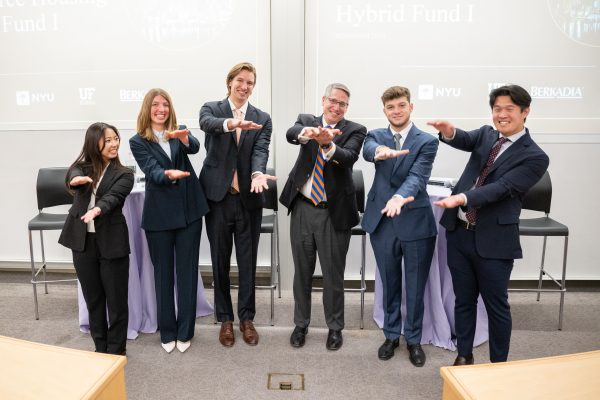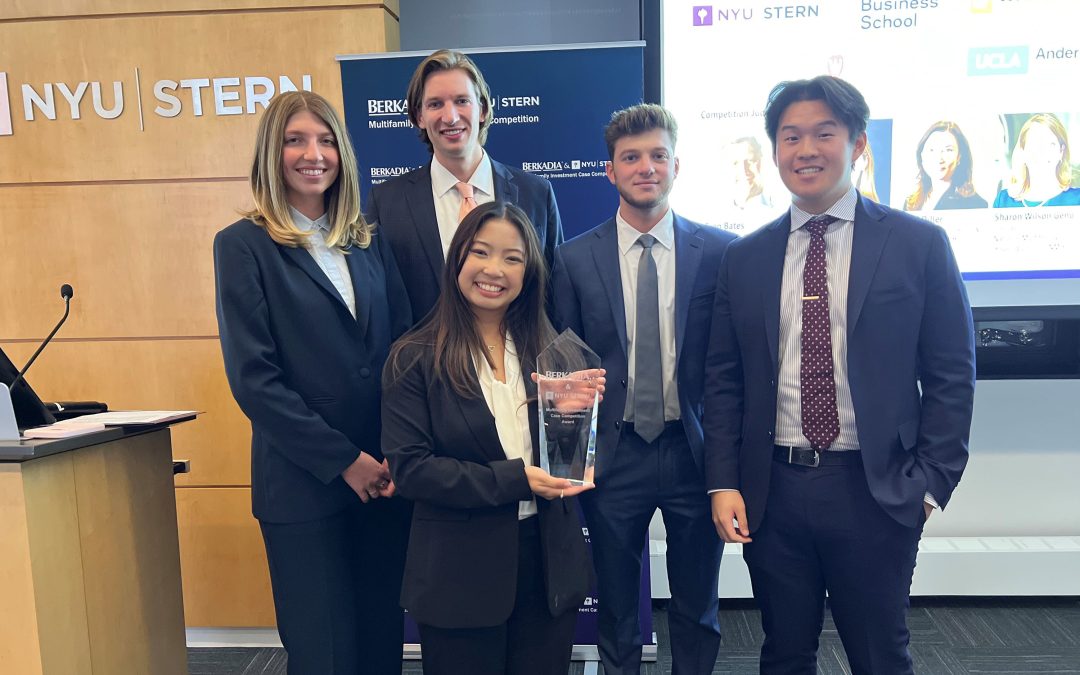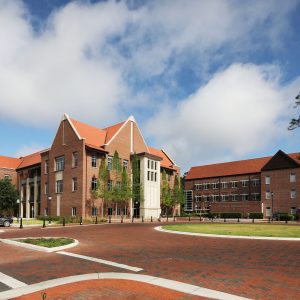Real estate students craft top solution for housing affordability at investment competition
MSRE and MBA students travelled to New York City to participate in Berkadia & NYU | Stern’s inaugural investment competition.
In November, a team of students from the University of Florida Warrington College of Business’s Nathan S. Collier Master of Science in Real Estate and Master of Business Administration programs won the inaugural Berkadia & NYU | Stern Multifamily Investment Case Competition.
Kevin Fu (BSBA ’24, MSRE ’25), Max Wolfman (BSBA ’24, MSRE ’25), Barclay Bryla (MBA ’25), Sophia Scroggie (MSRE ’25) and Maegan Ocampo (BSBA ’24, MSRE ’25) travelled to New York City to represent Warrington against five national business schools at NYU | Stern. After weeks of preparation and a full day of presentations, the Warrington team triumphed, winning first place.
“Winning this competition feels incredible, especially knowing it was the first of its kind,” the team commented. “It’s a testament to our team’s hard work, dedication and ability to think creatively under pressure. Competing against some of the best programs in the country and coming out on top is a huge honor, and it reinforces our passion for tackling complex challenges in real estate.”
The case addressed housing affordability, one of the most consequential issues facing the real estate industry today. Specifically, competitors were challenged to design a workforce housing investment fund that will lead to an affordable and sustainable solution for both real estate investors and middle-income residents.

The winning team with their faculty advisor, Tim Becker.
“We proposed a $300 million hybrid fund combining debt and equity strategies,” the team explained. “The debt strategy focused on construction financing to support workforce housing developers, while the equity strategy targeted acquiring and preserving aging Class A properties for workforce housing. This approach allowed us to create new housing supply while maintaining affordability for middle-income earners, achieving both social and financial objectives.”
Balancing innovation with practicality was the most challenging part of the case, the team said. Crafting a strategy that applies to a real-world issue strengthened their skills in analysis and collaboration while deepening their knowledge and appreciation of the field. Thus equipped, the team was eager to share their solution with the competition’s judges.
As representatives of some of the most impactful organizations shaping policy and outcomes for workforce housing needs, the competition’s judges were able to provide feedback on competitors’ presentations that went beyond the assigned case, extending to practical career advice that will help them turn their proposals into action.
“We’d like to thank the organizers, judges and [our] team for making this an unforgettable experience,” the team concluded. “The competition underscored how impactful and rewarding it is to tackle real-world challenges in real estate, and it’s an experience we’ll carry with us throughout our careers.”




